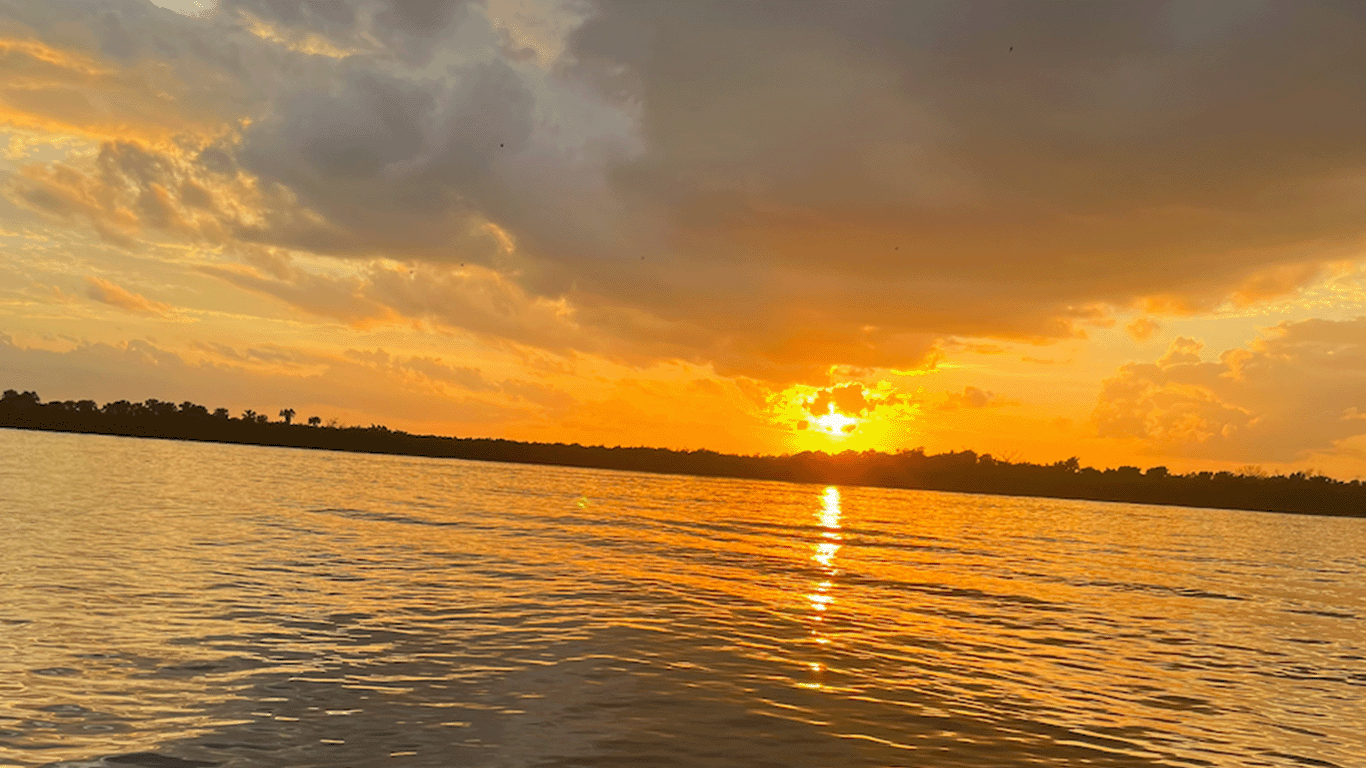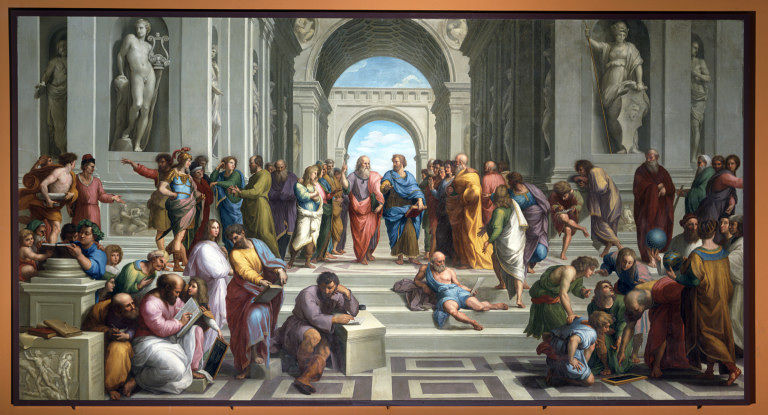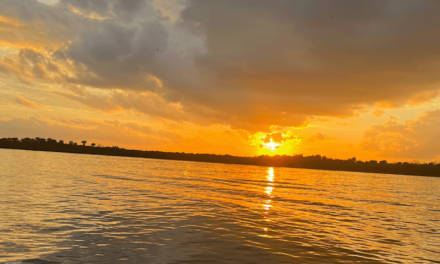
Encountering God in Nature
When we enter the realm of nature, we are immediately confronted by an awe-inspiring universe full of divine testimony.
Spirituality Versus Religion
WHAT DO PEOPLE MEAN WHEN THEY SAY, “I’M SPIRITUAL BUT NOT RELIGIOUS?” Usually, they don’t like or trust “organized or institutional Christianity” but recognize that there is more to life than just what can be seen. Sometimes, they even have a story to tell where, at some point in life, they experienced something, and the only way to describe what happened to them is to use the word spiritual.
Before we dismiss them, perhaps there may be something more to what they’re saying than we think.

Early in my ministry, I repeatedly heard from people I met in my community, “I’m spiritual but not religious.” When I asked them what they meant by it, they would describe what seemed more like a buffet of disconnected beliefs than any real genuine faith commitment. Personally, it felt like a polite way to avoid the inevitable conversation they assumed was coming about Jesus, sin, and the church.
I grew so tired and frustrated with it that I began quipping back, “I’m religious but not spiritual.” Of course, the subtle sarcasm underlying my snarky response did nothing to advance the conversation and effectively shut down any opportunity to share the love of Jesus. After a while, I eventually repented of my self-righteous attitude. And finally, I began listening with an open heart and mind.
When I did, I noticed that there was an authentic hunger and desire but uncertainty about how to have a legitimate encounter with the God of the Bible, apart from getting tangled up with a church. As I sat and listened, many people, including Christians tired of church nonsense, often describe their alternative “spiritual experiences” by retreating to nature to find solace and comfort from the world.
I remember a dear friend of mine who looked at me askant when I announced my intention to enter full-time vocational ministry. Coming from a rough Roman Catholic upbringing (nuns slapped his hand with a ruler when he tried to write with his left hand), he always spoke about his contrasting spiritual experiences to being in church with taking his boat out on the water. In those moments while cruising on his boat, the wind and water seemed to wash over his soul, baptizing and renewing him for another week of work.
Compared with “going to church,” those moments out on the water did far more for him than sitting in an uncomfortable pew and enduring repetitive liturgies while suffering through some poorly written and terribly long sermons.
It wasn’t just “relaxation” or “getting away.” Instead, my friend described his experience with the only word that seemed to fit: “spiritual.”
Who could blame him?
As a fellow boat enthusiast and water lover, I too, have experienced those euphoric moments where the stress of life momentarily releases, the zen of boating takes over, and a connection develops within me that I can only describe as “spiritual.”
“For the Greeks, there was a profound sense that one was truly human only to the extent that one lives in a harmonious relationship with the cosmos.”
Dr. Steven Turley

Being Spiritual Is Not Enough
What was happening to me and my friend? Were we merely experiencing a euphoria triggered by a dopamine release in our brains? Or in street language, were we getting high by our experience? Or is there something else going on that is reconnecting our souls with the divine?
I began pondering these and other questions after reading Stephen Turley’s work, Awakening Wonder: A Classical Guide to Truth, Goodness, and Beauty. In it, he tries to bridge the gap between nature and culture by reintroducing the reader to the idea of “cosmic piety.”
He writes that, unlike today’s modern world, the ancient world “was brimming with divine life.”[1] As such, “for the Greeks, there was a profound sense that one was truly human only to the extent that one lives in a harmonious relationship with the cosmos.”[2] Turley defines this relationship as “piety,” living in a way congruent with the universe’s order.
Today’s mindset is obviously very different.
Here is the problem. Our technological world has so coopted everyday life that we hardly notice that we still live in a natural environment created by a divine personality. Scientific advancement has so thoroughly stripped away the sacred from anything natural that we scarcely recognize God at work anymore.
So whenever we intentionally remove the synthetic veil over our lives that act like asphalt highways paved over the natural earth, suddenly, we’re once again confronted with nature and all of its divinely infused attributes.
We light candles and are enamored with their warm glow. We fill our senses with fresh salt air and are dazzled by its soothing presence. We don’t understand what’s happening because nothing is divine, we’re told. There are just naturalistic processes causing neurochemical reactions occurring in our brains that are devoid of any cosmic meaning.
But when we do enter the realm of nature, we are immediately confronted by an awe-inspiring universe full of divine testimony. Nothing seems to manifest this more than gazing upon the Milky Way at the billions of stars that fill our night skies. Or when we hear and feel the power of the wind and waves crashing on the shorelines of our favorite beaches. Or when we come face to face with the raw power of the elements in a natural disaster that reshapes the landscape of our homes, cities, and land.
Sometimes, we can look at the evening sky filled with the radiance of a setting sun and momentarily gasp at its stunning beauty. Or pause to take in a breathtaking view of waterfalls cascading off a mountainside and sense that somehow God did this to grab our attention. Such moments can’t help but speak to us in ways that go beyond mundane and insipid scientific descriptions.
Christian scripture describes these awe-inspiring experiences this way:
The heavens declare the glory of God, and the sky above proclaims his handiwork.
Day to day pours out speech, and night to night reveals knowledge.
There is no speech, nor are there words, whose voice is not heard.
Their voice goes out through all the earth, and their words to the end of the world.
(Ps. 19:1-4, ESV).
The psalmist David had no problem looking upward into the skies and listening to the cosmos’ praise of its creator. But as the psalmist notes, we can’t hear its praise when we fail to listen. Even though the heavens and sky continuously herald the majesty of the divine creator “through all the earth” and to the “end of the earth,” because of ordinary circumstances of life, we turn a deaf ear and fail to tune in to this cosmic symphony. As a result, we’re malnourished, suffering from spiritual jaundice, and cut off from what is immediately available to us.
Blindly groping for some words to express these experiences, we merely label it as “being spiritual.”
“Sensing the divine creator within creation’s awe, wonder, and beauty is cosmic piety.”
Cultivating True Piety
There is truth underlying the expression, “I’m spiritual.” The author of Genesis describes the creation of human beings from mud and spirit. Certain experiences evoke a profound sense of amazement and admiration that cannot be explained solely through scientific categories. But it is a mistake to rule out religion in search of spirituality. We must recognize that intentionally going about any activity to experience a spiritual connection is a form of religious behavior. In other words, when we knowingly do anything to satisfy some spiritual craving, we are experiencing a religious impulse prompted by a spiritual need.
We were not created to be like this. So, in desperation, in those moments when we encounter a thin place, what Celtic Christians described as a space where heaven and earth momentarily combine, we suddenly attach to it the word “spiritual,” mistakenly believing what just happened was an end in itself. However, when we do this, we limit the possibilities of God’s intention to elicit a proper response to worship Him and mistakenly confuse the creation with the creator.
For my friend he equates boating with spirituality itself. Still, others associate crystals, incense, or a myriad of other different superstitious beliefs with authentic spirituality, failing to see what is immediately apparent. The whole world is manifest with God’s presence.
That was St. Paul’s frustration in his letter to the Romans when he observed that unrighteous men “suppress the truth.” What truth? As the cosmic designer, God intentionally created these good things for us to enjoy to point us back to Him.
When Paul looked around the world, he observed God’s attributes have been clearly seen since the creation of the world.[3] All one had to do was look up and see that the cosmos was far grander than the Roman idols and temples could capture. Or their pantheon of gods could represent. None of what they labeled “god” or “divine” measured up to what was so abundantly obvious. There had to be a God responsible for it all.
Instead, human beings sought to exert some sense of control over the divine, a mistake that Christian Scripture traces all the way back to the beginning of history. Humanity “exchanged the truth of the glory of the immortal God for images” or religious/spiritual experiences of their own making. So they made idols and temples and made up stories about the gods to satisfy their spiritual needs.
We still do this today.
When my friend goes out on his boat, he confuses the activity with spirituality as the end in itself. It is a form of pseudo-religious behavior devoid of any meaningful truth.
When I go out on the water, the spiritual experience points me back to Christ, our creator[4], which my religious practices teach me to look for. In other words, the liturgies and weekly sermons prepare me to experience Christ in the world, not just on Sunday. The two understandings could not be any more different.
Most people fail to understand that nature was one of God’s vehicles to inspire us to worship Christ as the cosmic designer. That is what the Psalmist above was doing when he penned his poem. So when we encounter those same divinely inspired moments in nature where our senses are suddenly enhanced by the surrounding natural environment, in those thin spaces, we are transported, albeit briefly, into an encounter with God[5] and hear the cosmos proclaim, “The heavens declare the glory of God!”
That is true spirituality and the fruit of genuine religion. Sensing the divine creator within creation’s awe, wonder, and beauty is cosmic piety.




